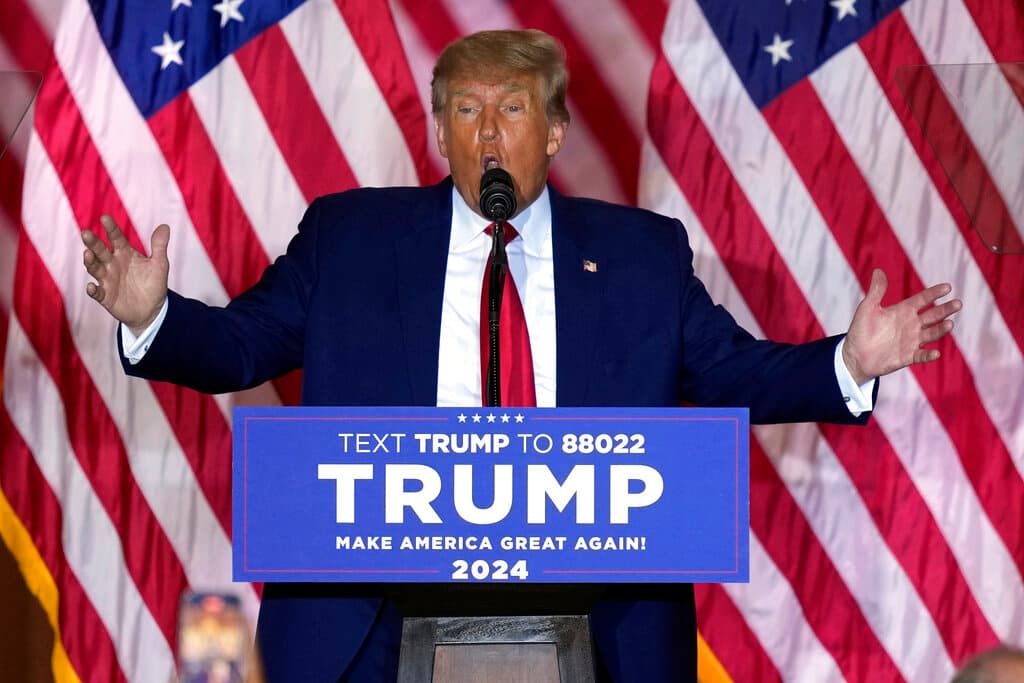Mar-a-Lago End Game Is Set To Commence
For the former president, preliminaries could soon give way to prosecution.

The special master appointed to tackle the trove of documents discovered at President Trump’s Mar-a-Lago compound is tasked with issuing his report by December 16, but the odds are lengthening against such an assessment ever seeing the light of day.
If the 11th Circuit undoes the special master’s appointment, it will clear a major impediment for the freshly appointed special counsel, John “Jack” Smith, to hand up an indictment against Mr. Trump, triggering the first criminal prosecution of a former president in American history.
That reality came into focus when three 11th Circuit riders, all nominated by Republican presidents, evinced skepticism toward Judge Eileen Cannon’s appointment of a senior judge, Raymond Dearie, to chaperone the Department of Justice’s handling of the documents.
Many legal watchers now believe Judge Dearie is laboring on borrowed time, as Mr. Trump’s attorney, James Trusty, could not furnish the jurists with a single instance where a special master was appointed in the absence of a finding of prosecutorial misconduct. A hearing before the special master is scheduled for December 1, adding a dash of urgency to the riders’ deliberations.
Should the 11th Circuit rule against Mr. Trump, as is expected any day, the former president would likely submit an emergency appeal to the Supreme Court in a last-ditch bid to keep Judge Dearie on the case. He also is likely to explore an appeal to the entire 11th Circuit, should his lawyers detect a sympathetic ear somewhere in that cohort.
The high court has of late not been solicitous of the former president, ruling against him in respect of his tax returns as well as refraining to intervene when the 11th Circuit exempted a cache of confidential documents, the core of the government’s case, from the special master’s purview.
The stakes go beyond Judge Dearie’s December diary. If the special counsel stays in place, his final report will inevitably be subject to further legal wrangling and appeals, pushing the horizon for a trial even further into the distance. The greater the delay, the louder the cries that Mr. Trump, who has already declared for 2024, is being subject to a political prosecution.
Mr. Smith’s team is likely eager to prosecute not only for a change of scenery, but one of venue. Judge Cannon, in the Southern District of Florida, has been consistently persuaded that any prosecution of Mr. Trump needs to be cognizant of what his lawyers have called his “unique status.” It is that consideration that the 11th Circuit appears resistant to grant.
An indictment could allow Mr. Smith to end Judge Cannon’s stewardship of the investigation. The District of Columbia could prove to be an enticing place to file charges, as the documents were first transported from the White House and the jury pool is likely to be skeptical of Mr. Trump, given that more than 90 percent of its residents voted for President Biden.
Charges are likely to center on the 1917 Espionage Act, which criminalizes the mishandling of materials “relating to the national defense” by those entitled to view those materials in the first place — like, say, the president. It predates the contemporary classification system, though Mr. Trump is likely to claim as a defense that he declassified all the documents in his possession.
President Wilson urged Congress to pass the Espionage Act in a State of the Union address delivered in 1915, where he thundered against those “born under other flags but welcomed under our generous naturalization laws to the full freedom and opportunity of America, who have poured the poison of disloyalty into the very arteries of our national life.”
Courts have held that for criminal charges to be brought under the Espionage Act, the documents are required to not be “available to the general public” and that their disclosure needs to be “potentially damaging to the United States” or potentially “useful to an enemy of the United States.” Violation of the act carries a prison sentence of up to a decade.
Alongside a substantive charge, Mr. Trump also is in Mr. Smith’s crosshairs for charges relating to obstruction, codified in 18 U.S.C. § 1519. That statute criminalizes destruction of evidence that obstructs certain federal investigations or proceedings, and comes attached to a possible 20 years behind bars.

